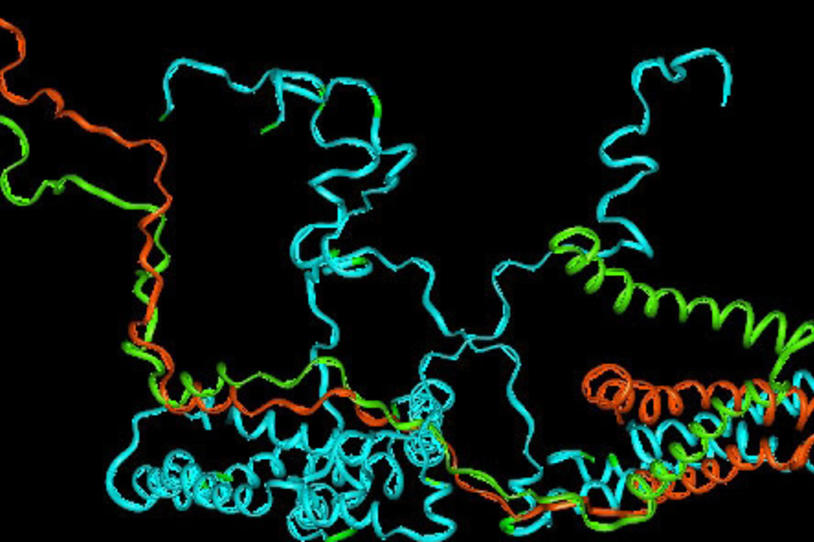
You may have read in Bloomberg News that "Parkinson's Patients May Be Harmed by Novel Treatment." Here is our take. The reality is, the story surrounding alpha-synuclein is a complex one, and determining its role in Parkinson's disease will require much more analysis.
Since its discovery in 1997, alpha-synuclein has become a major focus for those within the Parkinson’s disease (PD) research community, as all people with PD have clumps of the protein in their brains, called Lewy Bodies.
Even as we begin to learn more and more about alpha-synuclein and how it might spread throughout the body and brain during PD, there is still much to learn about alpha-synuclein’s relationship to the disease. A critical basic, yet complex, question that still needs to be answered: Does this clumping play a causative role in Parkinson’s, or, do these Lewy Bodies form as the body’s reaction to the onset and progression of the disease?
Most of the research to develop alpha-synuclein-targeted Parkinson’s drugs operates by attempting to stop the protein from clumping in the first place, to break up existing clumps, or to halt the toxic effects of the clumps. By and large the research is still in pre-clinical testing, although a vaccine candidate from Austrian biotech AFFiRiS is now in the clinic.
Whether these therapeutic approaches will work assumes that ridding the cell of extra, potentially toxic alpha-synuclein is a good thing. But study results presented today at the American Academy of Neurology (AAN) Annual Meeting suggest a more complex story.
The study, from Demetrius M. Maraganore, MD, of the Northshore University HealthSystem in Evanston, Illinois, surrounds the idea of gene expression, and specifically, the fact that drug candidates in development tend to focus on limiting the over-expression of alpha-synuclein, in order to reduce or prevent Lewy Body pathology.
But results presented by Maraganore and colleagues suggest that while over-expression of alpha-synuclein may increase a person’s risk for developing PD, its under-expression may lead to faster motor and cognitive declines in people with Parkinson’s.
Maraganore studied more than a thousand individuals with PD and looked for a particular genetic region called Rep1 that is found in a part of the DNA that tells the cell how much alpha-synuclein protein to make. Those with a so-called “short” version of this region are largely believed to make less alpha-synuclein protein than those with the “long” version.
So, if too much alpha-synuclein is indeed a bad thing, it would seem to follow that those with the short version should generally have a less aggressive form of Parkinson’s, while those with the longer form would see a faster progression in the disease. However, Maraganore’s team actually found the opposite effect to be true: That those with the short Rep1 region appeared to have a faster progressing PD.
Here’s where Maraganore team sees the biggest possible pitfall into those current potential treatments being studied in the lab and the clinic, most of which focus on slowing over-expression of alpha-synuclein: What might be the consequences of limiting expression of alpha-synuclein in people with PD who might already be experiencing under-expression of the protein?
It’s a question worth pondering, and one that further underscores the reality that there’s still much work to do to understand alpha-synuclein’s role in PD. Maraganore himself cautions that a much larger scale study would be needed to corroborate these recent findings.
In fact, a 2012 study from a team of researchers at the University of California Los Angeles found the opposite, and more intuitive, hypothesis to be true: That those with longer versions of Rep1 had more progressive PD.
MJFF Senior Associate Director of Research Programs Kuldip Dave, PhD offers some perspective:
“While Dr. Maraganore’s findings are certainly intriguing and merit more research, the reality is that we just don’t yet know enough about the normal function of alpha-synuclein and its role in PD to make definitive decisions about the best path of for drugs targeting this protein.
“For this reason, alpha-synuclein-based research is one of our Foundation’s priorities, and we look forward with optimism to new advances across a variety of therapeutic development strategies moving forward.”
We’ll keep you updated on all of the latest research news, including new findings on alpha-synuclein, at our Foxfeed blog.